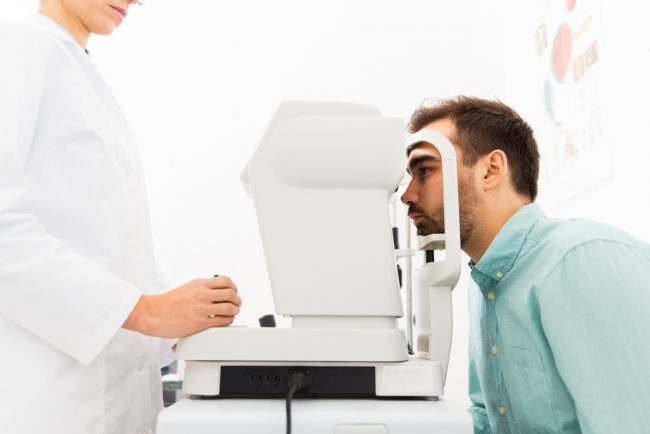eye screenings
Learn more about optometry care in our blog!

Did you know that blindness affects women more than men? The National Institutes of Health reports that 2/3rds of the people with blindness or visual impairments are women. Often, hormones, and especially life changes such as pregnancy and menopause, cause changes in women’s eyes.

Low vision generally means impaired vision, and it can happen whether you are young or old. Many people have low vision (meaning they can’t see well) due to hereditary conditions, eye diseases or eye injuries. Some people don’t see well at sunset with changing light and others have vision that deteriorates slowly as they age.

The American Cancer Society provides community education about eye cancer to help you diagnose symptoms and discover treatments. Two types of cancers can be found in the eye. The first category of eye cancer starts inside your eyeball itself. These are known as primary intraocular cancers with melanoma being the most common form in adults.

There are countless conditions and diseases that can target the eyes and affect your ability to see. Once damaged, can your eyes be healed once more? There are many common conditions such as glaucoma, macular degeneration, nearsightedness, farsightedness and more that our patients struggle with. Some conditions that involve eye damage or vision damage can be reversed while others can’t.

Your eyes are ever changing from infancy to adulthood. Good vision is not something your child is immediately born with. Vision develops over time, and the first 10 years of a child’s life are the most crucial for proper vision development. An infant sees colors, shapes, outlines, etc., all at different stages.

Blue light is everywhere in today’s digital world, but 72% of our population are unaware of its dangers. One of those dangers is that it can cause macular degeneration over time, which leads to blindness. Blue light can shine from both natural and man-made sources. Learn how you can safeguard your eyes from the dangers of blue light or from frequent screen exposure due to work or hobbies. Your eyes will thank you for it!

Diabetes can affect the health of your heart, liver and other organs, but did you know diabetes can affect your vision as well? Diabetes can lead to a condition called diabetic retinopathy as well as other eye problems. Diabetic retinopathy is a fancy term meaning “damage to the retina”, or the part of the eye that helps you see.

A vision type can be as unique to a person as their personality or sense of style. It is different in every single patient, but some visual conditions are quite common. Many of our patients have nearsightedness (myopia), farsightedness (hyperopia), astigmatism or near-perfect eyesight. What is the best vision type and what is the worst? At Optical Masters, we perform comprehensive exams that help us keep your eyes healthy.

Optimum eye health throughout your life can be achieved by ensuring you are doing your part. Vision is one of--if not the--most important of the five senses. It doesn’t take much to damage your vision, but it also doesn’t take much to preserve it. Learn what you can be doing to ensure your eye health stays stable throughout your life.

Neurological eye screenings conducted at our Optical Masters’ office provide you and your medical provider with important information about the state of your vision. Evaluating how your eyes and pupils work together and separately can tell your medical provider if the nerves and muscles controlling your eyes are functioning properly or suffering from a dangerous condition or disease.










 {{menu-footer}}
{{menu-footer}}